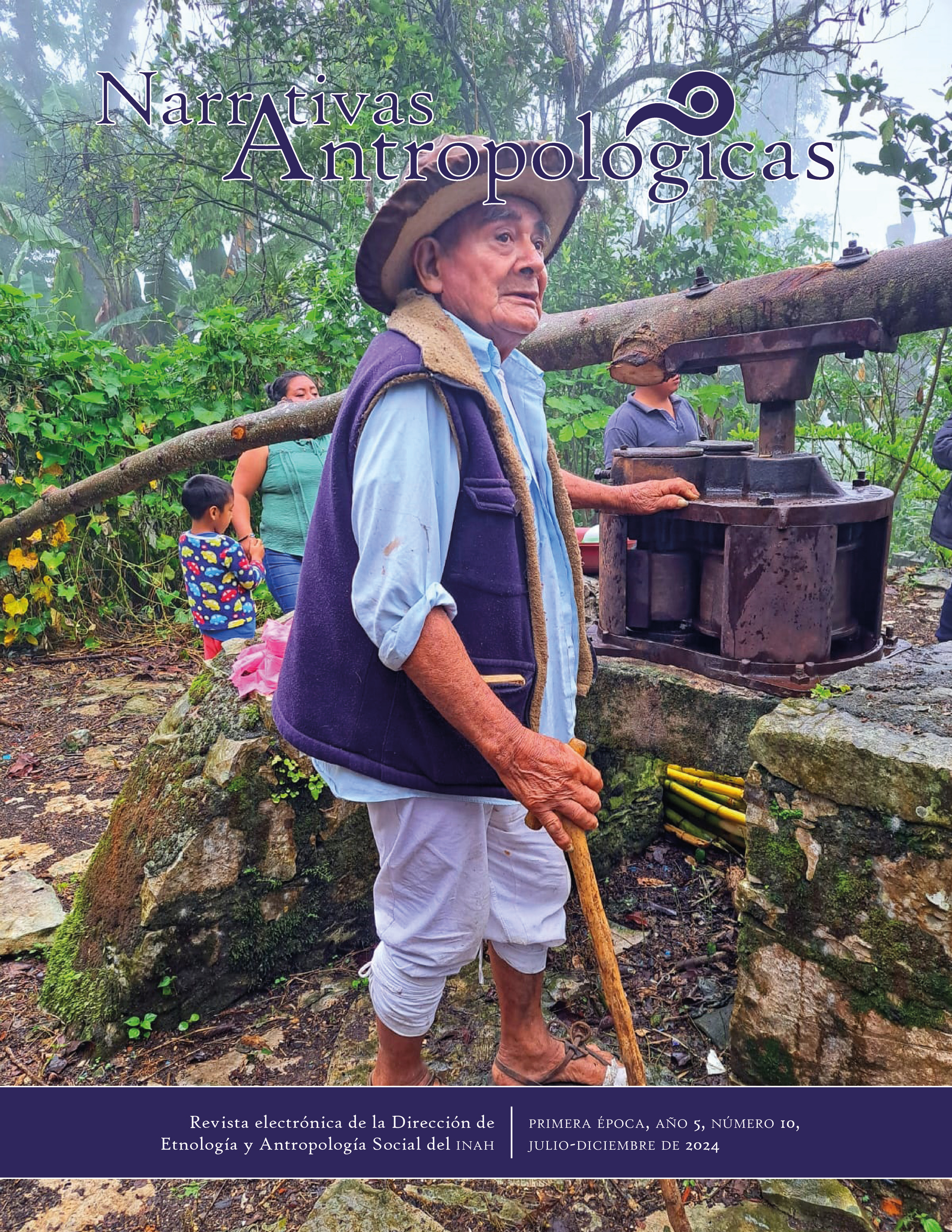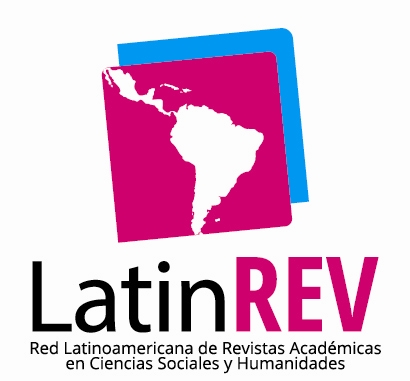Organizational frameworks and interactions in the clinic: Physiotherapy Unit dynamic at a neuropsychiatry hospital
Keywords:
frame analysis, institutional devices, social interactions, clinical ethnography, Physiotherapy healthcare activities, narrative analysis.Abstract
The aim of the study sought to elucidate the dynamics of clinical devices and their articulation with the subjectivity of the agents involved in healthcare processes. The theoretical-methodological proposal of narratives was used, as they mediate between personal experience and context, allowing the identification of shared socio-cultural meanings and significances. Relational ethnography methodology was employed using techniques of on-site observation and interviews with key informants. Narrative fragments were selected from fieldwork conducted in the Physiotherapy Unit of the tertiary hospital specialized in neuropsychiatry. The interpretative analysis of dialogical narratives attempted to demonstrate how clinical devices and organizational logics simultaneously shaped and operated in processes of care, education, research, and administration. The meanings and significances attributed by the participating agents to clinical situations combined knowledge, expectations, interests, feelings, decisions, and actions expressed in narrative plots. The findings have the potential to reconsider organizational strategies, harmonize interactional patterns, and reduce social tensions.
Downloads
References
Atkinson, Paul, The Clinical Experience (Aldershot: Ashgate, 1997).
Balarezo-López, Gunther, “Sociología médica: origen y campo de acción”, Revista de Salud Pública, núm. 2 (2018), acceso el 01 de abril de 2024 https://doi.org/10.15446/rsap.V20n2.46430.
Boltanski, Luc, La condición fetal. Una sociología del engendramiento y el aborto. Cuestiones de antagonismo (Madrid: Akal, 2016).
Bonet, Octavio, “La sociedad del espanto. Mallas de vidas en cuarentena”, Horizontes Antropológicos, núm. 59 (2021), acceso el 2 de abril de 2024, https://doi.org/10.1590/S0104-71832021000100008.
Bourdieu, Pierre, y Loic Wacquant, Una invitación a la sociología reflexiva (Buenos Aires: Siglo XXI, 2008), 87.
Breton, David le, Les passions ordinaires. Anthropologie des emotions (París: Armand Colin, 2001).
Carolina, Ester, y Charles Varano, Conflicted health care: Professionalism and caring in an urban hospital (Nashville: Vanderbilt University, 2014).
Castoriadis, Cornelius, La institución imaginaria de la sociedad (México: Tusquets, 2013), 37.
Corbin, Juliet, y Anselm Strauss, “Accompaniments of chronic illness: Changes in body, self, biography and biographical time”, Research in the Sociology of Health Care, vol. 6 (1987), 249-281, 251.
Fassin, Didier, At the heart of the State. The moral world of institutions (Londres: Pluto Press, 2015).
Foucault, Michelle, El poder psiquiátrico (Buenos Aires: FCE, 2005), 27.
Fox, Renee, “Reflexions and opportunities in the sociology of medicine”, Journal of Health and Social Behavior, núm. 1 (1985).
Goffman, Erving, Frame analysis. Los marcos de la experiencia (Madrid: CIS, 2006).
Good, Byron, Medicina, racionalidad y experiencia. Una perspectiva antropológica (Cambridge: Cambridge University Press, 1994).
Guattari, Félix, y Rolnik Suely, Micropolítica: cartografías del deseo (Madrid: Traficantes de Sueño, 2006), 13.
Hamui, Liz, y Josefina Ramírez, “Etnografía clínica y narrativas”, Dimensión Antropológica, vol. 81 (2021), 1-25.
Hamui-Sutton, Liz, et al., “Violence and clinical learning environments in medical residencies”, International Journal of Environmental Research and Public Health (2023), 6754. https://doi.org/10.3390/ ijerph20186754
Hemilse, Mariela, “Notas sobre la noción de ‘frame’ de Erving Goffman”, Revista Sociológica de Pensamiento Crítico, núm. 2 (2011), 187-198.
Joseph, Isaac, Erving Goffman y la microsociología (Barcelona: Gedisa, 1999), 67.
Kleinman, Arthur, The illness narratives: Suffering and healing and the human condition (Nueva York: Perseus Books, 1988)
Latour, Bruno, Reassembling the social: an introduction to actor-network-theory (Oxford: Oxford University Press, 2005).
Lemus Alcántara, Sergio, “Construcción sociocultural del proceso de atención de mujeres adolescentes embarazadas en un Hospital Federal de Especialidad” (tesis de doctorado, Facultad de Medicina-UNAM, México, 2023), 103.
Mattingly, Cheryl, “The checkers game: clinical actions in quest of a narrative”, en Healing dramas and clinical plots (Cambridge: Cambridge University Press, 1998).
Mattingly, Cheryl, “The concept of therapeutic emplotment”, Social Science Medicine, núm. 6 (1994), 811-822.
Mattingly, Cheryl, y Linda Garro, Narrative and the cultural construction of illness and healing (Berkeley: University of California Press, 2000), 36.
Menéndez, Eduardo, Hacia una práctica médica alternativa. Hegemonía y autoatención (gestión) en salud (México: SEP / CIESAS, Cuadernos de la Casa Chata, 86, 1983)
Mol, Annemarie, The logic of care: Health and the problem of patient choice (Londres / Nueva York: Routledge, 2008).
Nizet, Jean, y Natalie Rigaux, La sociología de Erving Goffman (Santa Cruz de Tenerife: Editorial Melusina, 2006), 53.
Paulo M., Alfredo, y Tomás Loza T., “El caso del área de rehabilitación: experiencias de la atención en conflicto”, en Interacciones y narrativas en la clínica: más allá del cerebro, de Liz Hamui et al. (México: Facultad de Medicina-UNAM, 2022), 252-306.
Ramírez, Josefina, “Trayectorias de atención y trayectorias de aflicción. Apuntes desde una etnografía relacional en espacios clínicos psiquiátricos”, en Interacciones y narrativas en la clínica: más allá del cerebro, de L. Hamui et al. (México: Facultad de Medicina-UNAM, 2022), 65- 162.
Riessman, Catherine, Narrative Analysis. Qualitative Research Methods (Newbury Park: Sage, 1993), 51-74.
Riessman, Catherine, Narrative methods for the human sciences (Thousand Oaks: Sage, 2007), 46.
Rossi, Ilario, “La clínica como espacio social ¿Época de cambios o cambio de época?”, en La comunicación dialógica como competencia médica esencial, org. por Liz Hamui, Alfredo Paulo e Isaías Hernández (México: Facultad de Medicina-UNAM / El Manual Moderno, 2018), 38-53.
Saxon, Graham, Cancer, culture and social structure, patients, physicians and illness (Nueva York: Free Press, 1972).
Spinelli, Hugo, Sentirjugarhacerpensar: la acción en el campo de la salud (Remedios de Escalada: Universidad Nacional de Lanús, 2022), 44.
Turner, Victor, The anthropology of experience (Chicago: University of Illinois Press, 1986), 29.
Villanueva, Marcia, y Roberto Castro, “Sistemas de jerarquización del campo médico. México: un análisis sociológico”, Ciênc. Saúde Coletiva, núm. 6 (2020), acceso el 2 de abril de 2024 https://doi.org/10.1590/1413-81232020256.28142019.
Wolf, Mauro, “Capítulo primero: Erving Goffman, o la descalificación de la inocencia”, en Sociologías de la vida cotidiana (Madrid: Cátedra, 1994) 19-105.
Zurita Cruz, Jessi Nayelli, “Los alcances de la investigación clínica”, Revista Mexicana de Pediatría, núm 5 (2019), 173-174, acceso el 2 de abril de 2024, http://www.scielo.org.mx/scielo.php?script=sci_arttext&pid=S0035-00522019000500173&lng=es&tlng=es.








